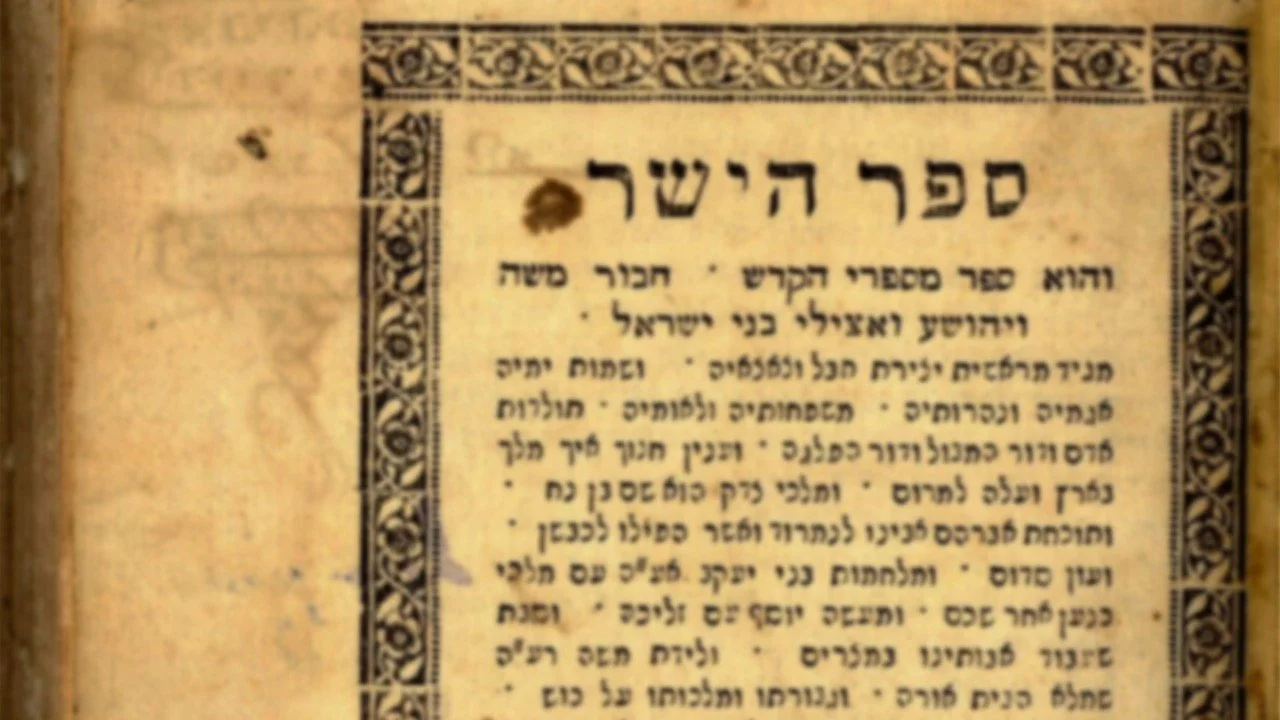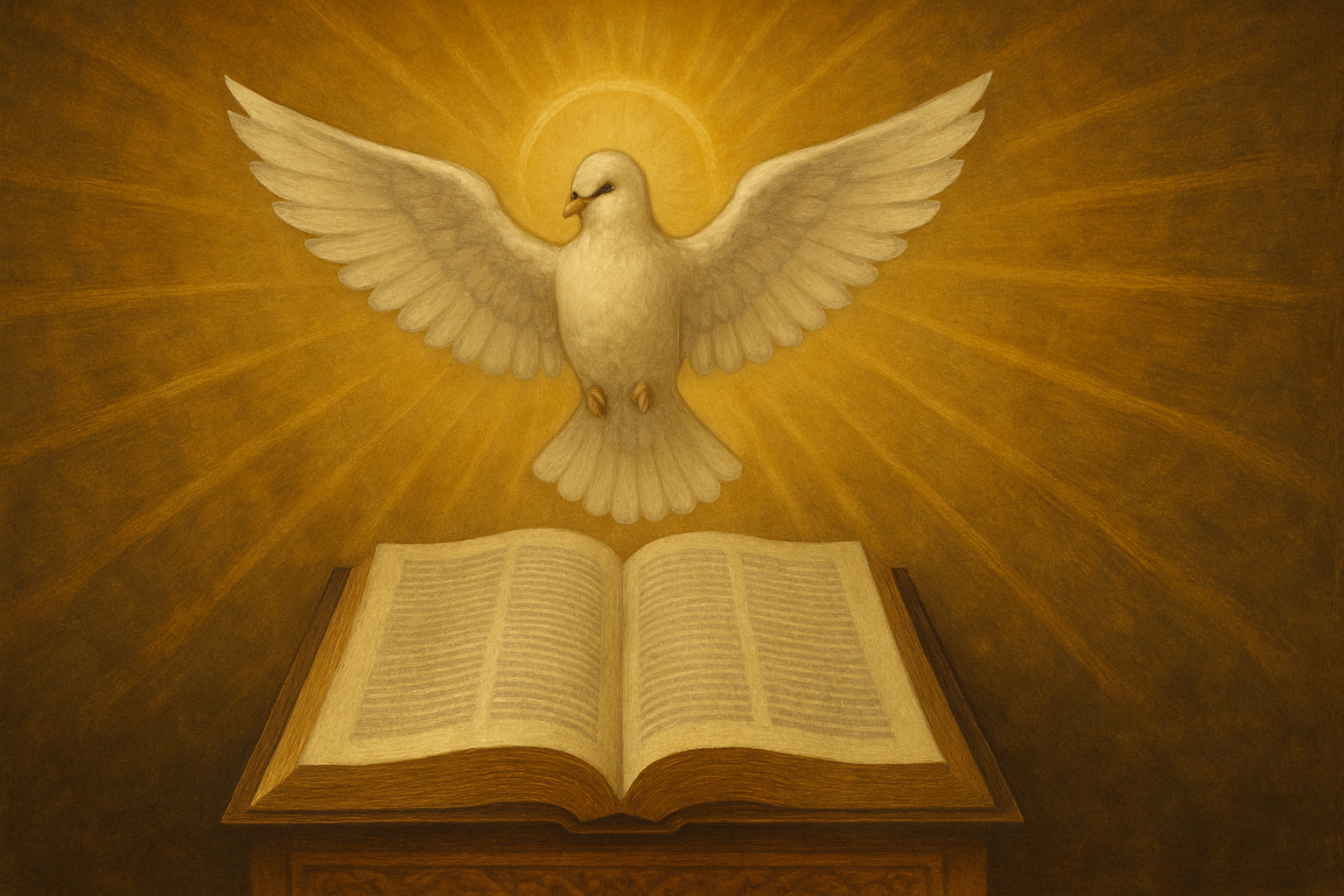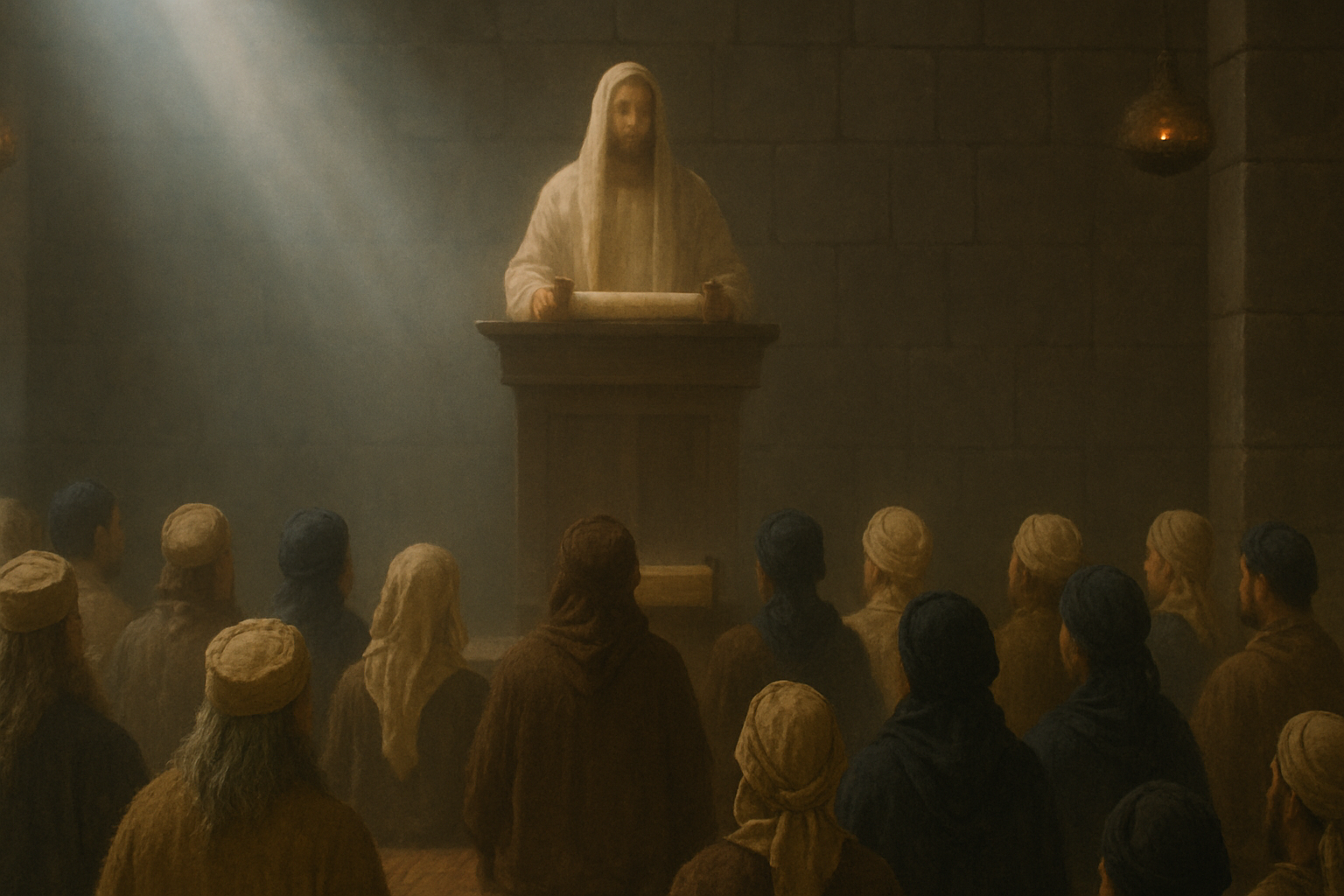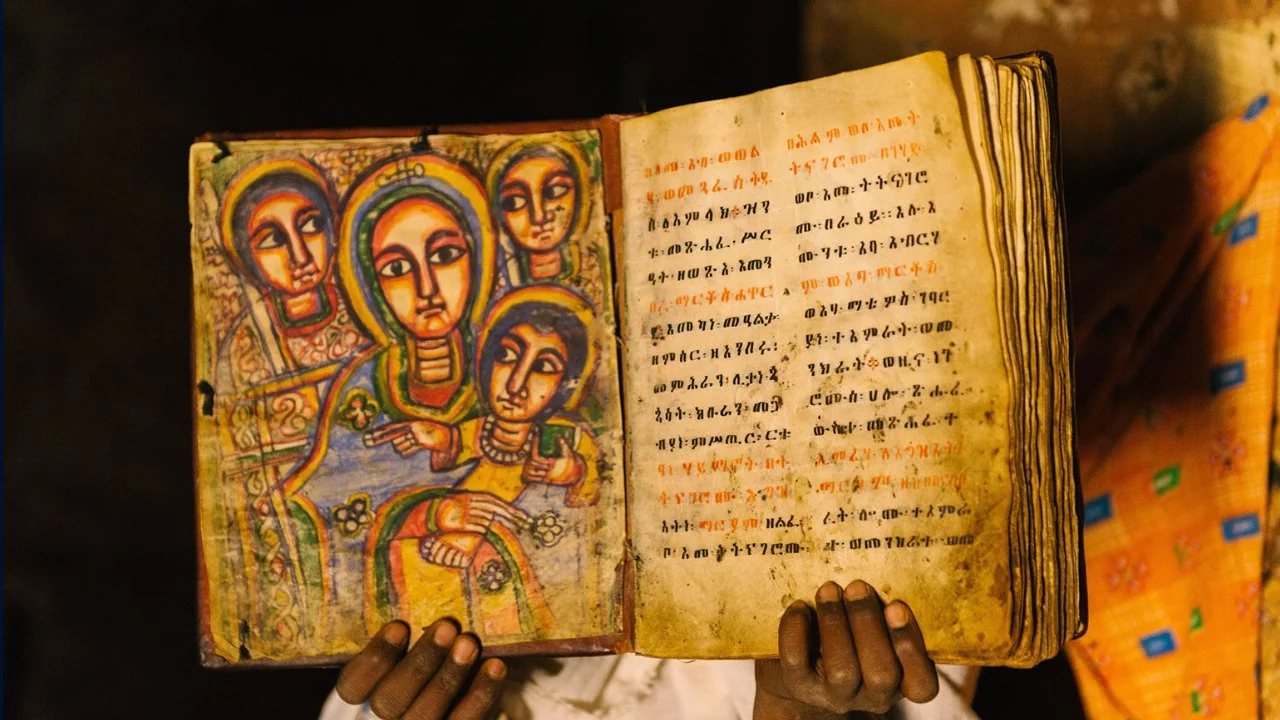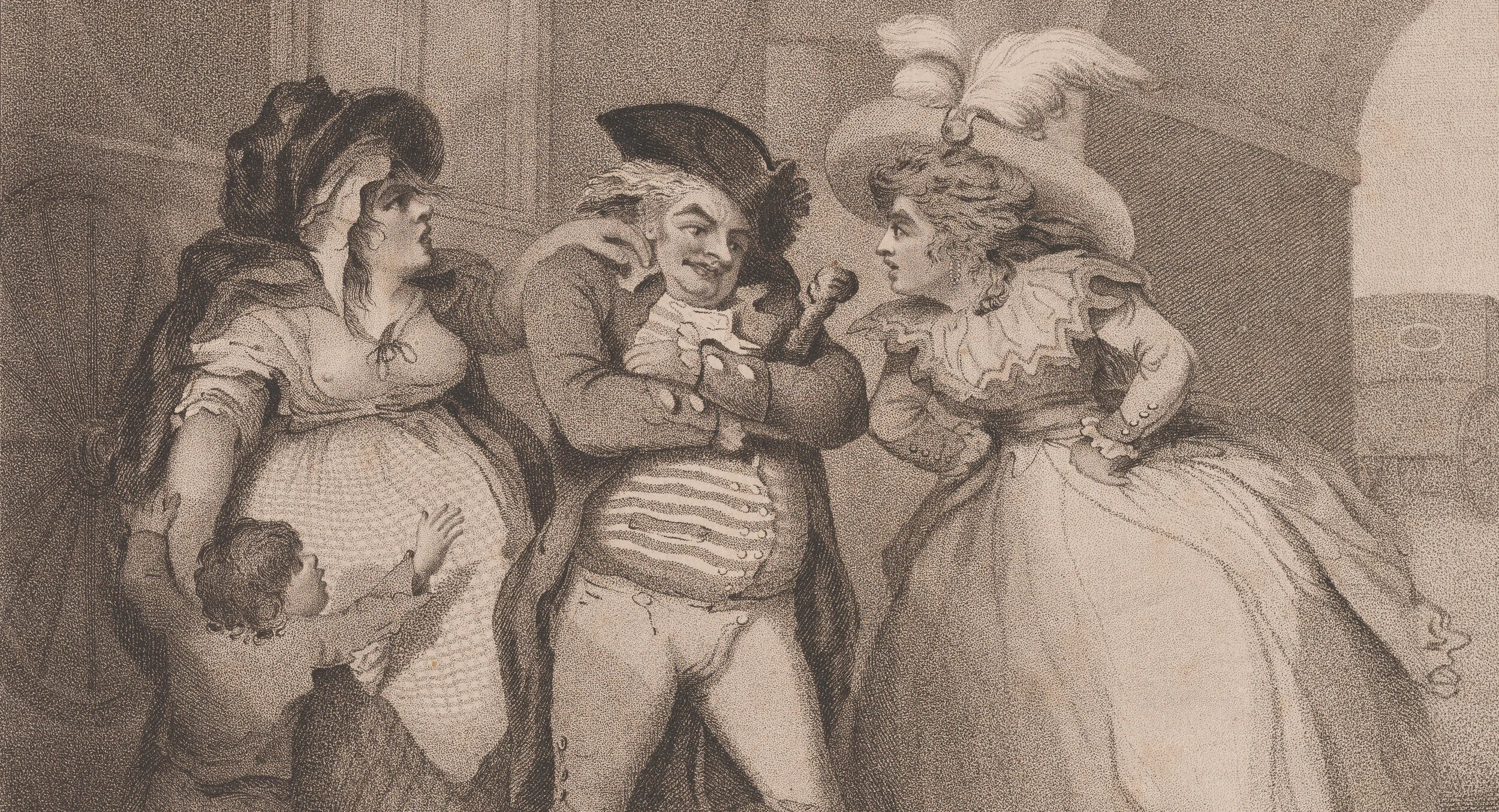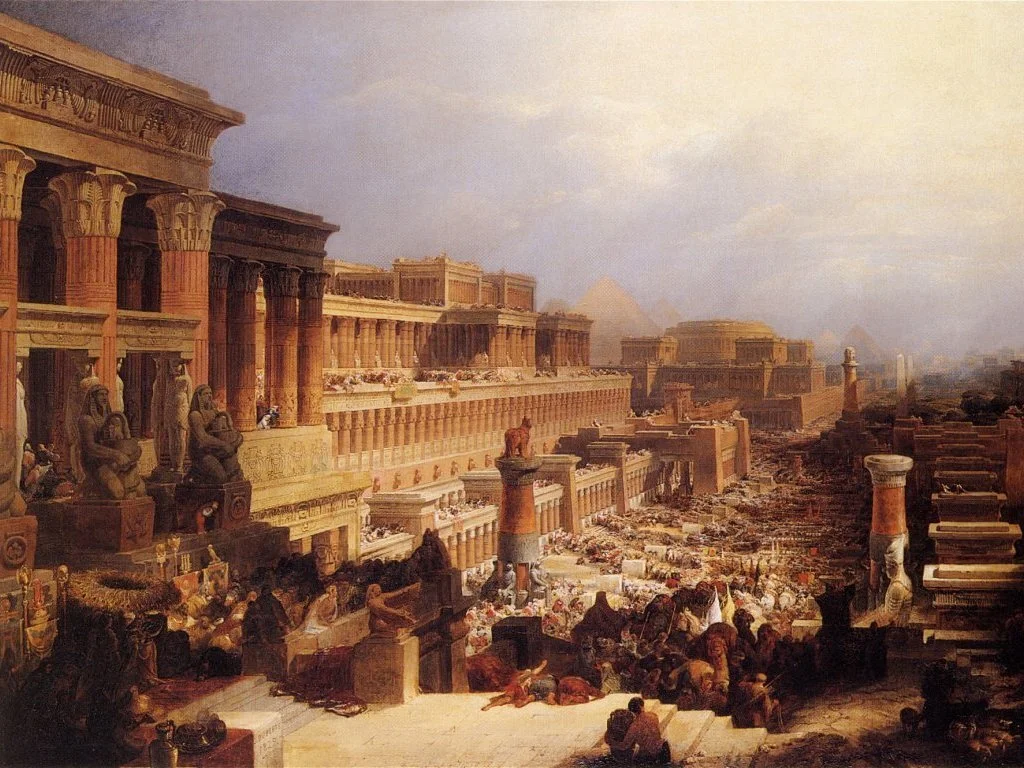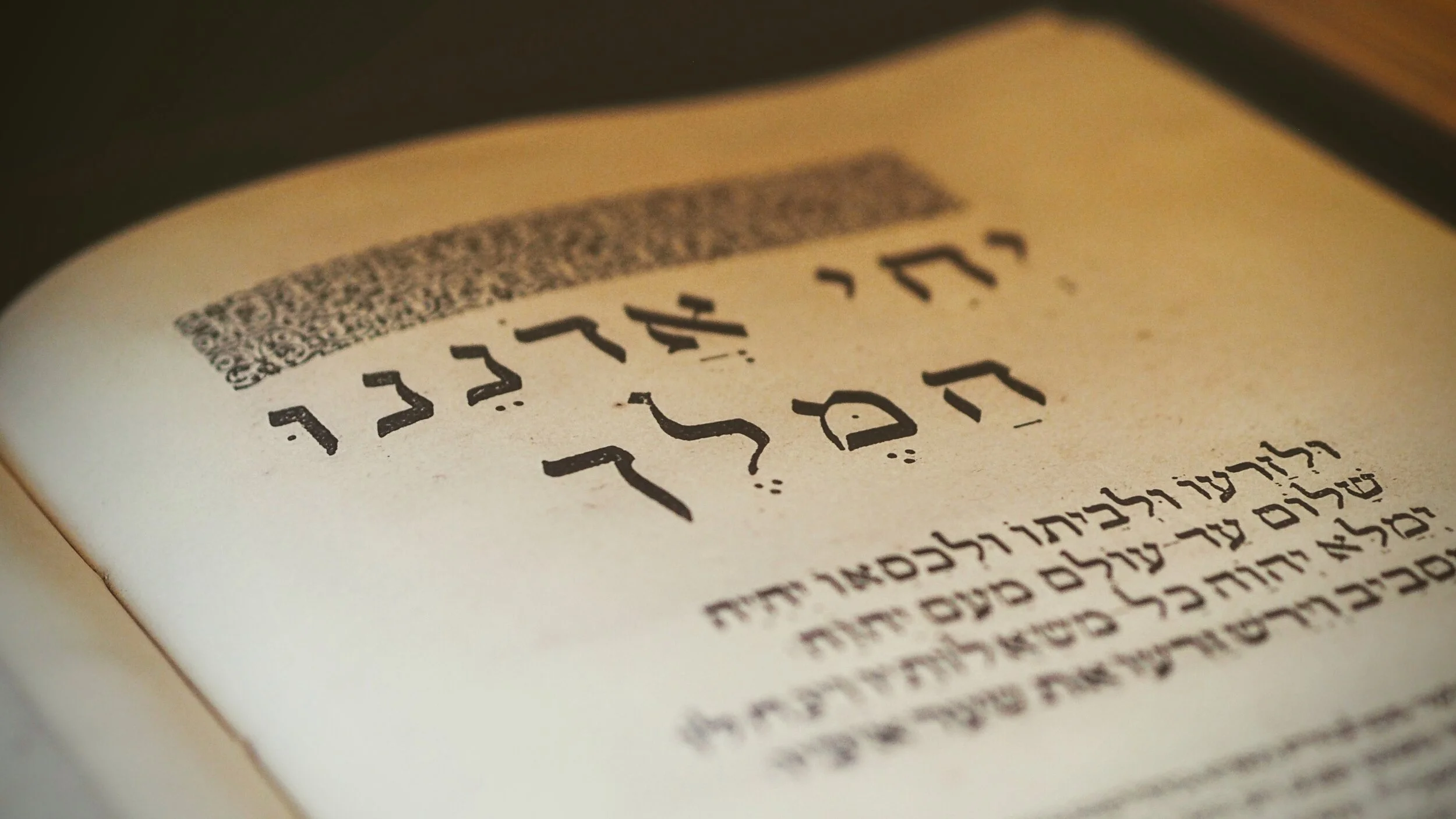Author: David Wilber
Should we keep only the commands contained in the "Book of the Covenant" and not the ones contained in the "Book of the Law"?
There are two individuals in the Torah-keeping movement who teach what I consider to be errors concerning a supposed distinction within the Torah. One of these individuals has written two books on the topic while the other is actively teaching their ideas at conferences and congregations around the United States. Normally I tend to keep to myself and let people believe what they want. I rarely feel the desire to publicly address other people's teachings, but I’ve received quite a few questions about the information brought forth by these two individuals. After privately trying to reason with both of these teachers over e-mail, I’ve decided that I should go ahead and write this public response.
(UPDATE 7/31/18: In a recent sermon in which he attempted to offer a rebuttal to this article, Matthew Nolan falsely claimed that I never reached out to him and David Perry: “Neither I or Dr. David Perry have ever been contacted over email by our author as he states above. This is a patently untrue statement. How are we to trust any subsequent statements made by the author when public false statements are made like this?” Matthew Nolan lied to his congregation when he made this statement. I have copies of the emails with Nolan. I forwarded those emails to him after I saw that he made this false statement and asked him why he lied; he never responded.)
This article is based on my research of Matthew Nolan and David Perry's public teachings on this topic in addition to my e-mail conversations with them. I focus specifically on their belief that the commands contained in what they define as "the book of the law" are no longer for believers today. You can find out more about their teachings on their websites.
The Application of Torah
For those who are unfamiliar with my views concerning the role of Torah in the life of Believers, I’ll give a quick summary: I am a Torah-pursuant Christian. That means that I follow Messiah Yeshua (Jesus) and I believe that the Bible teaches me to obey the commandments and principles outlined in the Torah (often translated into English as "law") given through the Prophet Moses. Stated more negatively, I deny the belief that the Torah is, at best, no longer relevant to Christians, or at worst, a burdensome yoke that was abolished and taken out of the way by Yeshua’s death and resurrection. According to Yeshua, nothing from the Torah will pass away until heaven and earth passes away (Matthew 5:17-19). Heaven and earth do not pass away until there is no more crying, mourning, pain, nor death (Revelation 21:1-4). We still have crying, mourning, pain, and death; therefore, it follows logically that nothing from the Torah has passed away.
Many aspects of the Torah cannot be kept today due to the fact that the elements required to Biblically observe them do not exist right now. For instance, we cannot observe the commandments concerning sacrifices because there is no Temple in Jerusalem at which to make sacrifices. However, there are many aspects of Torah that we should keep today, such as: the Sabbath, dietary instructions, wearing tzitziyot, and not lying, stealing, coveting, etc. Also, although there are some aspects of the feasts that cannot be observed right now (e.g. sacrifices at the Temple), we keep the memory of the Feasts to the best of our ability while we're not in the land. This would include keeping the annual Sabbaths and rituals associated with the Feast days (such as ridding our homes of leaven during the Feast of Unleavened Bread and fasting during Yom Kippur).
I say all that to make my point that when it comes to figuring out which parts of Torah are applicable for today, it is not a matter of "picking and choosing." It’s a matter of whether some things are even possible.
To give an analogy, in Missouri there are speed limit laws that apply to certain roads. If a road is under construction and blocked off to traffic, then the speed limit law of that road becomes inapplicable. You can’t accuse a law-abiding citizen of Missouri of ignoring the speed limit of that road if they physically can’t apply it. In the same way, many of the laws in Torah require certain specific elements in order to be properly observed. As stated above, many of those elements do not exist today (e.g. a physical Temple in Jerusalem). Therefore, those particular laws become inapplicable until the road is no longer under construction, so-to-speak. Furthermore, many laws in Torah apply only to specific people. To continue with this analogy, if you don’t have a driver’s license, then none of Missouri’s driving laws apply to you. They apply only to drivers. Much in the same way, Torah gives specific laws to specific people (Priests, Levities, Judges, farmers, women, poor people, rich people, etc.). Therefore, if you are not a Priest or Levite operating within a physical Temple in Jerusalem, or a judge over theocratic Israel appointed by God Himself, then the specific laws given to those groups of people don’t apply to you.
One day Yeshua will return and reestablish the Temple in Jerusalem. Israel will be a theocratic government with the Torah as its constitution again. Much of the Torah will apply again at that time, but in the meantime, we can only do the best we can with where we are.
A New Revelation of Torah?
What is stated above has been my view for the past eight years. I’m used to having to defend my views against "mainstream Christians" who claim that the Torah is fulfilled in Christ, which according to them means that we don’t have to keep commands like a literal Sabbath anymore. However, recently the validity of the Torah is being questioned from a different angle. There are two individuals who now are teaching that Torah-pursuant Christians and Messianics, such as myself, are clinging to the "status quo" by holding to our current Messianic theology. It is said that until we accept their new revelation we are rejecting our full inheritance as "Melchizedek priests."
So, what exactly is their "new revelation"?
It goes like this: God’s original plan was that His people were all supposed to be priests and follow only the commands that are found in “the Book of the Covenant” (apparently in addition to a few other random commands given earlier in Genesis and Exodus for reasons I don't understand). Exodus 19:5-6 are the opening lines of this covenant and it ends when the Covenant is ratified at Exodus 24:8.
Then he took the Book of the Covenant and read it in the hearing of the people. And they said, “All that the Lord has spoken we will do, and we will be obedient.” And Moses took the blood and threw it on the people and said, "Behold the blood of the covenant that the Lord has made with you in accordance with all these words. - Exodus 24:7-8
Israel broke this Covenant when they made the golden calf (Exodus 32). Since Israel was unfaithful, God was going to wipe them out. However, Moses pleaded for them and God decided not to kill them. Instead, God made a "plan B." The plan B was to establish the Levitical Priesthood. Moreover, God decided to add "the Book of the Law" to the Covenant, which apparently includes all of God’s commands contained in Exodus 24:12 – Deuteronomy 31:26.
When Messiah Yeshua died and was resurrected, the Melchizedek priesthood took the place of the Levitical priesthood, and therefore the Book of the Law was removed and taken out of the way. This means that the only commands followers of Yeshua need to keep today are found in the Book of the Covenant. Why? Because that was the original Covenant to which God’s people were called as Melchizedek priests (before they forfeited this calling and God made the Levites priests instead and added the Book of the Law). God’s commandments that are found in the Book of the Law, plus the entire Levitical priesthood, were apparently only temporary until Yeshua came and replaced the Levitical priesthood with the Melchizedek priesthood.
From what I can tell, the above hypothesis is simply their attempt at reconciling the difficult passages in the New Testament that seem to speak negatively about the law (Torah). Basically, their view is that any time the New Testament seems to say that the law is done away with or burdensome or temporary, it’s actually talking about the “Book of the Law” (the commands contained in Exodus 24:12 – Deuteronomy 31:26). Again, according to their view, the Book of the Law was added because of transgression (Galatians 3:19) -- specifically the transgression of the golden calf. The Book of the Law was not part of the original covenant. Moreover, it was placed on the side of the ark (Deuteronomy 31:26), it’s “against us,” it’s not any good, and it is now removed and taken out of the way because Yeshua established the Melchizedek priesthood. Therefore, if anyone keeps and teaches the commands contained in the Book of the Law (e.g. wearing tzitziyot or fasting on Yom Kippur), they are living in legalistic bondage and promulgating the religious status quo!
Here are 10 reasons why you should reject this theory
1) The Bible never makes a clear distinction between the Book of the Covenant and the Book of the Law. In fact, sometimes the two titles are used synonymously.
For example: 2 Chronicles 34 tells us that the “Book of the Law” was found by Hilkiah the priest and brought to King Josiah (vs. 14-21). This same book is called the “Book of the Covenant” when King Josiah reads it to the elders of Judah and Jerusalem (vs. 29-30). The same story is told in 2 Kings 22 & 23 -- the Book of the Law is found (2 Kings 22:8), and the same book is then later called the Book of the Covenant (2 Kings 23:2).
When I brought this point up to the two individuals promoting this theory, they responded by saying that if Hilkiah had found the Book of the Law then he would have also found the Book of the Covenant since they were right next to each other (Deuteronomy 31:26).
Quick side note: They also believe that all the commands throughout the entire Book of the Covenant (Exodus 24:12-24:8) were written on the stone tablets, not just the Ten Commandments. This will be addressed later.
The problem with their response is that they are assuming that there were, in fact, two books found. However, there is nothing from the text indicating that there were two books found. The plain reading of the text is that only one book is being referred to.
They cited Ezekiel 20:25 as their proof text to support their view that there is a dichotomy between the Book of the Law and the Book of the Covenant:
“because they had not executed My judgments, but had despised My statutes, profaned My Sabbaths, and their eyes were fixed on their fathers idols. 25 Therefore I also gave them up to statutes that were not good, and judgments by which they could not live; 26 and I pronounced them unclean because of their ritual gifts, in that they caused all their firstborn to pass through the fire, that I might make them desolate and that they might know that I am the Lord.” -Ezekiel 20:24-26
These “not good” statutes, they say, are referring to the "Book of the Law." However, there are several flaws with this interpretation. First of all, if Ezekiel was speaking against keeping certain commandments in Torah, then he would be a false prophet according to Deuteronomy 13. Moreover, Deuteronomy 30 states that the laws were given for a blessing, not for harm or punishment. And verse 14 of chapter 30 specifically says that we can do the Book of the Law. Therefore, the “statutes that were not good, and judgments by which they could not live” in Ezekiel 20:25 cannot possibly be referring to any of God’s commandments.
A reasonable alternative interpretation is that these “not good” statutes and judgments were those adopted from the heathens. It seems more plausible that the text is saying "because you have broken my commandments (vs 24), I am going to give you over to these pagan ways that I pronounce unclean because they pass their firstborn through the fires of Molech".
This is similar to what is said in Isaiah 63:17.
“O LORD, why do you make us wander from your ways and harden our heart, so that we fear you not?"
Also consider Acts 7:42.
“But God turned away from them and gave them over to worship the host of heaven.”
Finally, Romans 1:21-28 says that God gave the heathens “up to uncleanness,” “unto vile affections,” “to a reprobate mind.” There are many other examples like this. Ezekiel’s point was that the consequences of disobedience and rebellion against God’s commands leads the sinner on to even greater sin. The Israelites rebelled against God. Therefore, the natural consequence of their disobedience was that they fell under the influence of the heathens.
2) The Priesthood was given to Aaron and his sons before the golden calf incident.
Then bring near to you Aaron your brother, and his sons with him, from among the people of Israel, to serve me as priests—Aaron and Aaron's sons, Nadab and Abihu, Eleazar and Ithamar. –Exodus 28:1
If God established the priesthood and added the Book of the Law as a result of the golden calf, then why does it appear that it was His intention to give the Priesthood to Aaron before the golden calf incident ever happened? It’s also helpful to note that all Priests are Levites, but not all Levites are Priests. Levites actually served as helpers to the Priests. They had some priestly duties, but they were not Priests themselves. It could be said that the Levites (not the Priests) were formally set apart for this service after the golden calf incident (Exodus 32:25-29). It is inferred that they replaced the firstborn for this particular service based on passages such as Numbers 3:12. However, this was not a change in priesthood, but rather a change in the office of priestly helpers to the sons of Aaron. Again, the priesthood on earth was established and given to Aaron and his sons before the golden calf incident.
Their response to this point was simply to say that some parts of Torah weren’t written in chronological order. In other words, they believe that Exodus 28 happened after Exodus 32. I fully concede that parts of the Torah are not written in chronological order. However, some parts of it are -- and the transition between the end of Exodus 31:18 (right after all the tabernacle and priesthood commands) and the beginning of Exodus 32 strongly appear to be chronological. He gives Tabernacle commandments in chapter 31 and ends the chapter saying: "31:18 And when He had made an end of speaking with him on Mount Sinai, He gave Moses two tablets of the Testimony, tablets of stone, written with the finger of God." This tells us that Moses is on the mountain as God gives him commandments concerning the Tabernacle and then writes the Ten Commandments on stone. The very next chapter starts out telling us that Moses is still on the mountain when the golden calf incident occurs, and then verse 15 tells us that Moses came down from the Mountain with the stone tablets. One would need a very strong textual argument to show that this is not chronological.
Their entire hypothesis rests on a reverse chronology in this story, and because the foundation of their theory is based on this reverse chronology, this must be addressed -- not just in theory, but with irrefutable proof. The only possible argument that could be made is that the commands given throughout Exodus 25 – 31 are not what Moses received when he was on the Mountain for 40 days and 40 nights, as indicated by Exodus 24:18. But this argument is flawed because the narrative picks up in Exodus 32 with Moses coming down from the mountain. What was he doing on the mountain if not receiving the commands given in Exodus 25-31? Why would the Torah be written in such a confusing way? Every indication is that the entire section is chronological.
It must be reiterated that it is not stated anywhere that there was a change in the priesthood at the golden calf incident. If anything, the ordination of the Levities was established at that point. The Levites are not necessarily priests, though. Again, all priests are Levites, but not all Levites are priests.
3) God says that we are blessed when we keep His commands contained in the Book of the Law.
These two individuals talk about how the Book of the Law was set beside the Ark of the Covenant as a witness against the people of Israel (Deuteronomy 31:26). They interpret this to mean that the instructions in the Book of the Law were added as a punishment -- hence they were “against them.” They later correlate this concept with verses like Colossians 2:14 where it talks about Yeshua canceling the record of debt that stood “against us” -- and they read the “Book of the Law” into that passage. Their conclusion is that Yeshua took away the commandments contained in their definition of the Book of the Law, leaving only their definition of the Book of the Covenant to remain for Believers.
But if the commands are a blessing then how can it be said that they are against us or added as a punishment for making an idol?
When we read the context we discover that Deuteronomy 31:26 is teaching us that breaking God’s law brings disaster. The Book of the Law stood as a “witness against them” because it informed them of the consequences of their actions. We’ve all broken the law; therefore, it stands as a witness against us because of our sin. Yeshua took away the consequence of eternal damnation that we all deserve for breaking the law -- nailing our record of debt to the cross. He did not take away the law.
4) There is no reason to believe that Covenants made after Exodus 24:8 are somehow less valid or binding.
A covenant is an agreement between two parties. Just because you have one agreement doesn’t mean that you can’t have more. When two people get married, they agree to certain terms of a Covenant (e.g., “in sickness and in health"). After the first week of marriage, there are hundreds of laws that are “added” to that agreement (e.g., “don’t leave the toilet seat up"). Is God not allowed to have additional expectations of His people after giving them expectations in Exodus 20-24?
When I asked these two individuals this question, their response was that the laws given after Exodus 24:8 were “not a covenant.” In fact, here is their exact quote from our e-mail exchange:
“BoL [Book of the Law] is Non-Covenant Torah, that was later added as a witness against us for breaking Covenant Torah. These later BoL laws are Not Covenant.”
However, this is what Deuteronomy 29:1 says about the Book of the Law:
These are the words of the covenant which the Lord commanded Moses to make with the children of Israel in the land of Moab, besides the covenant which He made with them in Horeb.” – Deuteronomy 29:1
This is after Exodus 24:8 and God makes it clear that the Book of the Law was called “Covenant.”
Again, there is no reason to assume that we shouldn't follow one of God's commandments just because He commanded it after Exodus 24:8.
5) The “change in the priesthood” was not a change to the earthly priesthood.
Now if he were on earth, he would not be a priest at all, since there are priests who offer gifts according to the law. – Hebrews 8:4
Hebrews 8:4 tells us that Yeshua cannot be a priest on earth, because according to the law, the earthly priesthood was given to Aaron (Exodus 28:1). This tells us that Yeshua’s heavenly priesthood did not affect the earthly priesthood. The earthly priestly system is a copy and a shadow of the heavenly system. The heavenly tabernacle does not replace the earthly tabernacle, just like the establishment of the earthly tabernacle didn’t replace the heavenly tabernacle (Exodus 25:9,40).
Their response to this point was simply to ask which priesthood we are part of if Yeshua’s priesthood is not on earth (citing 1 Peter 2:9 which states that we [Followers of Yeshua] are a royal priesthood).
My question to them is, if Yeshua is not a priest on earth then why are we? Furthermore, Peter clearly states that he is referring to a spiritual priesthood, not an earthly one (see verse 5 of 1 Peter 2). Not all of us are priests on earth; only the sons of Aaron are priests on earth. However, we all should function as priests from a spiritual perspective (priest means minister and servant of the High Priest). Peter is simply applying the quote from Exodus to Believers in Yeshua to make a point. He's drawing a Spiritual principle to say that we should behave as holy ministers and servants of Yeshua. He isn't randomly declaring that Christians have replaced the sons of Aaron as the literal priests on earth.
6) Yeshua said that nothing from the Torah (including the Book of the Law) will pass away until heaven and earth passes away (Matthew 5:17-19).
Their response was essentially to agree that nothing has passed away, but they said that we still don’t have to keep the commands contained in the Book of the Law anymore because of the change in priesthood -- which makes the phrase “pass away” rather meaningless. Commands can be inapplicable because there is no way to literally keep them (as explained above), but the passage is clear that no commandment has been made void or invalid. Indeed, many of the commands that are inapplicable now will become applicable again when Yeshua returns.
7) God has more than Ten Commandments.
As briefly mentioned above, one of the aspects of their hypothesis is that all of the commands contained in the Book of the Covenant (Exodus 19:5 – 24:8) were written on the stone tablets. However, Deuteronomy 5:22 states that it was only the Ten Commandments that were written on the two tablets. After Moses gets done repeating the Ten Commandments, he says:
These words the Lord spoke to all your assembly at the mountain out of the midst of the fire, the cloud, and the thick darkness, with a loud voice; and he added no more. And he wrote them on the two tablets of stone and gave them to me.
Also, Deuteronomy 10:4 states:
And he wrote on the tablets, in the same writing as before, the Ten Commandments that the Lord had spoken to you on the mountain out of the midst of the fire on the day of the assembly. And the Lord gave them to me.
Their response was that the Hebrew word “lo,” which is translated in English as “no” in Deut. 4:22 doesn’t actually mean “no.” I’m not a Hebrew scholar, but I have not been able to verify this at all. Furthermore, they claimed that the Hebrew word “Eser,” translated in English as "ten" (Deut 10:4), could actually mean more than ten. But this Hebrew word is used 157 times in the Bible and every single instance it means the exact number ten. Again, I simply could not verify these claims -- even after checking with people who know Biblical Hebrew to make sure I'm not missing anything.
This is actually very critical, because if these Hebrew words are translated correctly, then it would mean that what these individuals are defining as “Covenant commandments” -- the only ones we should still be keeping -- are actually limited to only the Ten Commandments. That would be the theological implication of their position if those passages are translated correctly (which they are).
8) There is no reason to assume that the commands placed on the side of the Ark are less important or valid than the commands placed inside the Ark.
Furthermore, if the commands placed on the side of the Ark of the Covenant are somehow less important, then by that formula, the entire rest of the Bible, including the New Testament documents, are therefore even less important as they are not included in the Temple at all!
9) There is no evidence that this theory is true.
Why is there not a single trace of clear instruction or dialogue about this supposed distinction in the entire Bible? If this theory is true, then it would most certainly be the most important doctrinal revelation since creation. And indeed, it would be reasonable to assume that the prophets would have foretold of it. Also, wouldn't the apostles have gone into great depth on the subject so that there would be no confusion? Furthermore, there is so much arguing between Paul and his opponents on the issue of Torah, but not one single time did he think to just explain to the Circumcision Party that there are two different books!? Paul is brilliant and it seems unreasonable that he would miss such an opportunity to set the record straight. On the other hand, he seems to defend the Torah to the hilt. This topic is extremely controversial between Torah-based Messianics today and those who hold to this doctrine -- how much more would it be controversial in a world full of Jewish Messianics who were even more zealous about the Law since the Temple was still standing? Yet there is not a single biblical or extra biblical source telling us of such arguments? This alone makes it very suspicious to me as a modern day creation.
10) The Apostles all continued to keep and teach the commands contained in the Book of the Law.
Paul says that “all” Scripture is “breathed out by God and profitable for teaching, for reproof, for correction, and for training in righteousness.” This would include the Book of the Law. James makes the judgment that the Gentiles will learn the rest of the Torah every Sabbath in the synagogue (Acts 15:21) knowing that the rabbis would be teaching the Book of the Law in addition to the Book of the Covenant. Is James advocating that the Gentiles learn false doctrine? Furthermore, all four of the commands listed in Acts 15:20 that Gentiles were specifically commanded to do are found in the “Book of the Law.” Paul continued to observe Yom Kippur by fasting in Acts 28:9. Paul takes a nazarite vow in Acts 21:20-26. The list goes on and on.
There are many more reasons that I can list, but I believe that these 10 reasons are sufficient to demonstrate the errors in this teaching. In conclusion, if and until these objections are addressed, there is simply no reason to believe that there is a distinction between the Book of the Covenant and the Book of the Law or that the Book of the Law is done away with. As Paul says, all scripture is profitable for teaching, for reproof, for correction, and for training in righteousness ... not just the parts of Scripture before Exodus 24:8.
About David Wilber
David is first and foremost a passionate follower of Yeshua the Messiah. He is also a writer, speaker, and teacher.
David’s heart is to minister to God’s people by helping them rediscover the validity and blessing of God’s Torah and help prepare them to give an answer to anyone who asks about the hope within them (1 Peter 3:15)…


